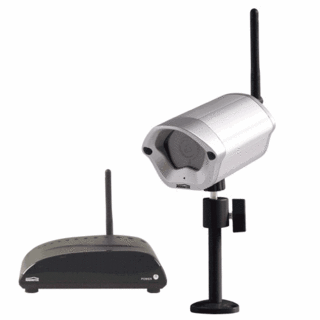Microsoft's undeclared patent claims on Sender ID technology is holding up adoption of the e-mail authentication specification
Published:
14 September 2004 y., Tuesday
Microsoft's undeclared patent claims on Sender ID technology is holding up adoption of the e-mail authentication specification, and it's not clear when the issue will be resolved.
The MTA Authorization Records in DNS (MARID) working group was supposed to conclude its discussion of Sender ID Friday and send it to the next stage of the Internet Engineering Task Force (IETF) standards adoption. But an e-mail from one of the chairmen over the weekend put an end to that.
Andrew Newton outlined four areas where some form of consensus within the community has been reached in regards to Sender ID so far: DNS name prefix, Sender Policy Framework (SPF)-specific record types, support for multiple authentication schemes and patent claims. But no mention was made as to when a final draft for Sender ID will move forward for adoption as a proposed standard.
Microsoft's patent claim centers on the combined use of two Internet drafts: draft-ietf-marid-core-03 (Sender ID) and draft-ietf-marid-pra-00 (the Purported Responsible Address [PRA] algorithm developed by Microsoft). The open source community says the license agreement protecting those patents violate the GPL (define). So to try and accommodate the needs of the open source community while still keeping Sender ID alive as a viable technology, Newton and Marshall Rose, the other MARID co-chair, floated a compromise measure to separate the PRA algorithm from Sender ID last week.
It's a compromise that lets those comfortable with Microsoft's license agreement continue to use Sender ID with the PRA check, while letting others develop their own authentication scheme for e-mails and still be able to use the core Sender ID specification.
Unfortunately, because of the unspecified nature of the patents, MARID working group members still weren't convinced that removing the algorithm would completely absolve users from the necessity of signing a license agreement. Also, deciding which authentication "check" to use caused a gridlock on any decision supporting the compromise.
Šaltinis:
internetnews.com
Copying, publishing, announcing any information from the News.lt portal without written permission of News.lt editorial office is prohibited.
The most popular articles
Software company announced new structure_ of it_s business.
more »
 Just a few weeks ago, the world's tiniest video camera was as small as a grain of rice. Today, the world's NanoEst camera is even smaller.
more »
Just a few weeks ago, the world's tiniest video camera was as small as a grain of rice. Today, the world's NanoEst camera is even smaller.
more »
 During the experiment two research groups managed to overcome a symbolic 100 TB/s optical fiber data transmission speed limit.
more »
During the experiment two research groups managed to overcome a symbolic 100 TB/s optical fiber data transmission speed limit.
more »
 Apple’s long–awaited online storage service for iTunes could be named iCloud, if only rumours are to be believed.
more »
Apple’s long–awaited online storage service for iTunes could be named iCloud, if only rumours are to be believed.
more »
 The founders of video-sharing site YouTube have bought bookmarking service Delicious from Yahoo.
more »
The founders of video-sharing site YouTube have bought bookmarking service Delicious from Yahoo.
more »
 The successful raid by hackers on Sony’s PlayStation Network is already being ranked among the biggest data thefts of all time.
more »
The successful raid by hackers on Sony’s PlayStation Network is already being ranked among the biggest data thefts of all time.
more »
 Apple has denied that its iPhones and 3G iPads have been secretly recording their owners' movements.
more »
Apple has denied that its iPhones and 3G iPads have been secretly recording their owners' movements.
more »
 Customers who have waited nearly 10 months for the white version of the iPhone 4 won’t have to wait much longer. The Great White iPhone 4 is finally here.
more »
Customers who have waited nearly 10 months for the white version of the iPhone 4 won’t have to wait much longer. The Great White iPhone 4 is finally here.
more »
 Researchers at Georgia Tech University are teaching a robot the basics of dialogue. Named "Simon", the robot has already been taught how to attract a person's attention but eventually, it's hoped he'll be able to interact and converse with humans in daily life.
more »
Researchers at Georgia Tech University are teaching a robot the basics of dialogue. Named "Simon", the robot has already been taught how to attract a person's attention but eventually, it's hoped he'll be able to interact and converse with humans in daily life.
more »
 3D? Terribly lame when it's tossed into devices as a bullet point feature. Trimensional for iPhone takes a picture of your face and maps your mug in a 3D model.
more »
3D? Terribly lame when it's tossed into devices as a bullet point feature. Trimensional for iPhone takes a picture of your face and maps your mug in a 3D model.
more »
 The European Union is to investigate whether internet service providers (ISPs) are providing fair access to online services.
more »
The European Union is to investigate whether internet service providers (ISPs) are providing fair access to online services.
more »